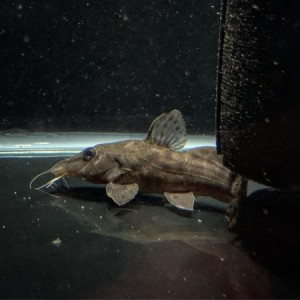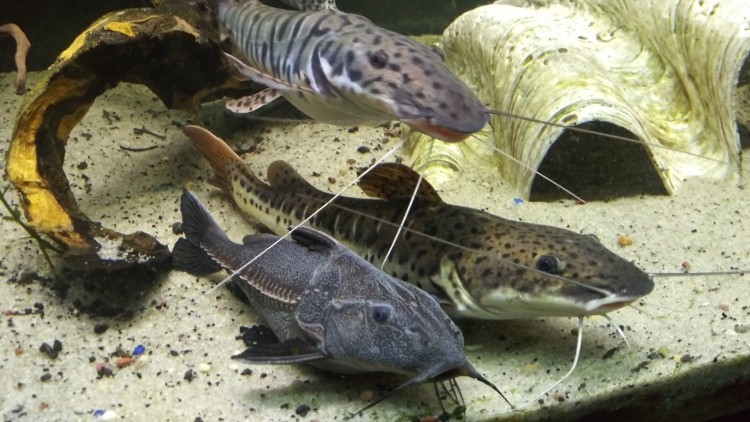- Name:
African Giraffe Catfish
(View AKA's) - Family: Claroteidae
- Species: Catfish
- Scientific Name: Auchenoglanis occidentalis occidentalis


General info about African Giraffe Catfish
Auchenoglanis occidentalis occidentalis has a life span of 8 to 18 years and the average adult is 27 inches. They have a yellow base color with dark brown on top, similar to a giraffe’s pattern, hence its common name. Due to its large size, a large aquarium with excellent filtration is a must. They prefer soft substrate and hiding places should be provided since this species doesn’t appreciate bright light. Since it is a peaceful and sociable species they can be kept in a community aquarium as long as their tankmates are larger than its mouth.
African Giraffe Catfish Diet & Nutrition
This species is omnivorous, it feeds on plankton, invertebrates and detritus. In an aquarium it can be fed with prepared foods, live foods or frozen foods.
Determining Sex of African Giraffe Catfish
It is not possible do determine sex just by looking, however, if a female is pregnant she will appear wider than the other individuals.
Breeding & Spawning African Giraffe Catfish
Nested eggs are guarded by the male parent. The male parent may also host the eggs and young of Dinotopterus cunningtoni which takes advantage of the already prepared nest. This is an example of interspecific brood care.
African Giraffe Catfish Origin
This species can be found throughout Africa’s lakes and large rivers that have shallow water and soft substrate.
African Giraffe Catfish are Venomous
Original Detail
| Name | Species | Family | Scientific Name | More Detail | Added by |
|---|---|---|---|---|---|
| African Giraffe Catfish | Catfish | Claroteidae | Auchenoglanis occidentalis occidentalis | Auchenoglanis occidentalis occidentalis has a life span of 8 to 18 years and the average adult is 27 inches. They have a yellow base color with dark brown on top, similar to a giraffe’s pattern, hence its common name. Due to its large size, a large aquarium with excellent filtration is a must. They prefer soft substrate and hiding places should be provided since this species doesn’t appreciate bright light. Since it is a peaceful and sociable species they can be kept in a community aquarium as long as their tankmates are larger than its mouth. |
PalaciosAn |



